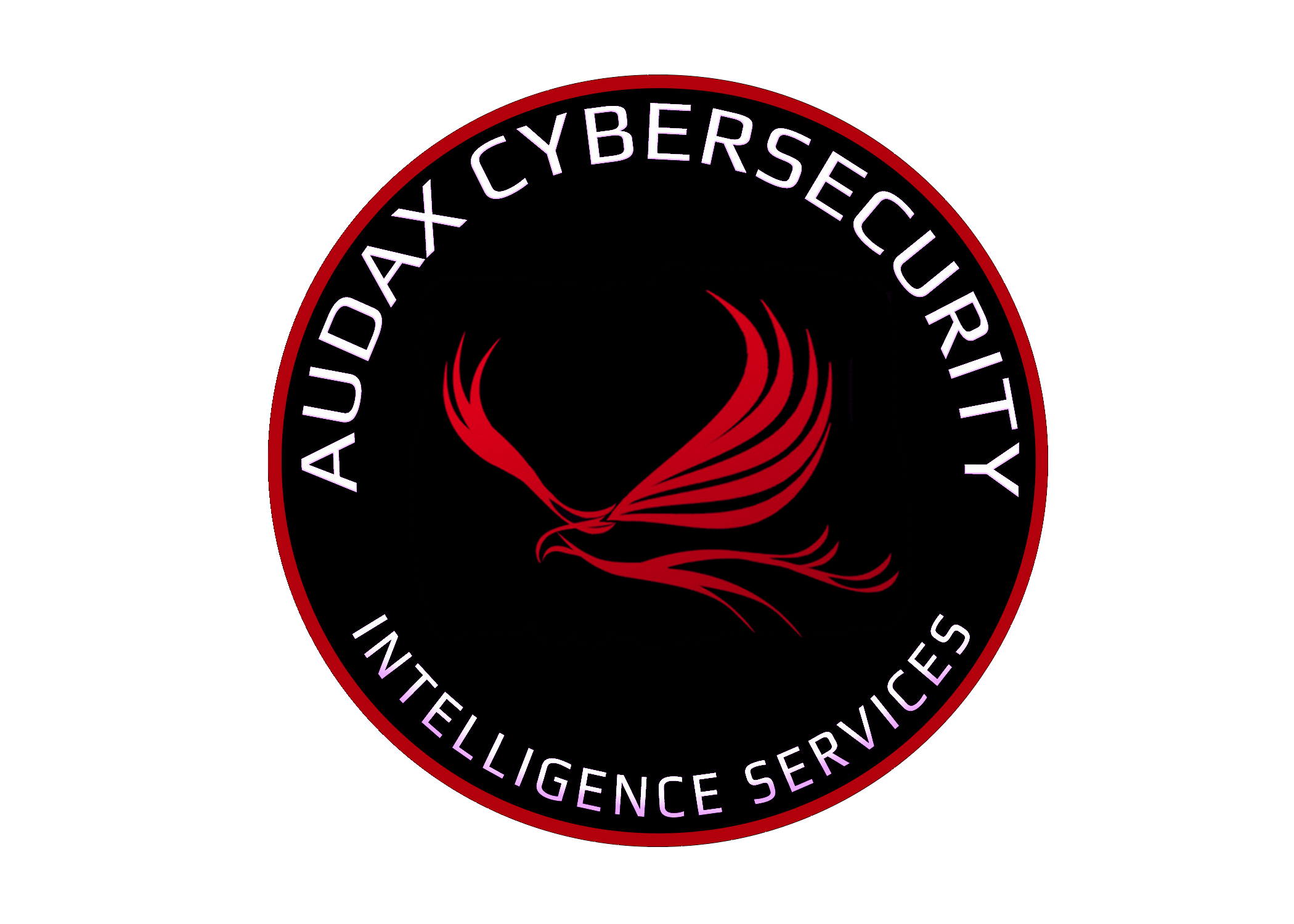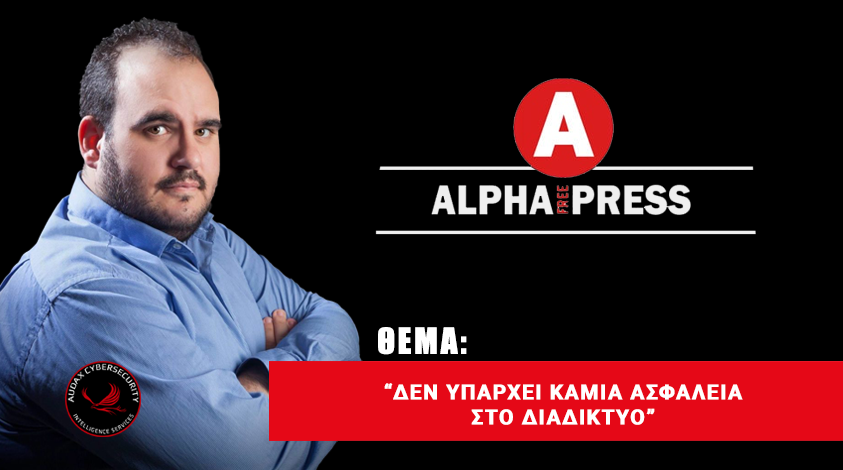Συνέντευξη από έναν κορυφαίο χάκερ: «Δεν υπάρχει καμία ασφάλεια στο διαδίκτυο»
της Κωνσταντίνας Γιαννακοπούλου
Σχεδόν ο μισός πληθυσμός του πλανήτη μας βρίσκεται πλέον στο διαδίκτυο, με τον αριθμό των χρηστών να ξεπερνά τα 3,5 δισεκατομμύρια. Πρόκειται, αναμφίβολα, για ένα αναπόσπαστο κομμάτι της καθημερινότητάς μας, καθώς τόσο η εργασία, όσο και η προσωπική μας ζωή περνά μέσα από έναν υπολογιστή. Οι καθημερινές μας δραστηριότητες, η παραγωγική διαδικασία, οι συναλλαγές, η εκπαίδευση, η διασκέδαση, όλα γίνονται με το πάτημα ενός κουμπιού. Το χρήσιμο, όμως, αυτό εργαλείο που έχει απλουστεύσει τη ζωή μας, μας καθιστά ταυτόχρονα και εύκολη βορά για τους επιτήδειους. Μια νέα μορφή εγκληματικότητας, το ηλεκτρονικό έγκλημα, έχει λάβει παγκόσμιες και ανησυχητικές διαστάσεις, με τους ειδικούς να προειδοποιούν ότι όσο περισσότερο χρόνο περνάμε στο διαδίκτυο, τόσο πιο ευάλωτοι γινόμαστε.
Από την ανομία στην νομιμότητα
Ο Θεοφάνης Κασίμης, πρώην χάκερ, αποτέλεσε για πολλά χρόνια τον εγκέφαλο της «Ελληνικής Hacking Σκηνής» με το ψευδώνυμο «Kondor». Σήμερα, ο Νο 1 χάκερ, που μέχρι πριν λίγα χρόνια σκορπούσε το χάος στο διαδίκτυο, ασχολείται με την ασφάλεια πληροφοριακών συστημάτων και είναι ιδρυτής της Audax Cybersecurity. Το πώς κατέληξε από την ανομία στο σήμερα, αλλά και πώς μπορούμε να προστατευτούμε από τους κινδύνους του διαδικτύου, αναλύει ο ίδιος στην «Alpha freepress».
«Χακάραμε ιστοσελίδες επί 13 χρόνια»
Ο κ. Κασίμης από πολύ νεαρή ηλικία γοητεύτηκε από τον διαδικτυακό κόσμο και άρχισε να τον εξερευνά, «τεστάροντας» το κατά πόσο είναι ασφαλείς ορισμένες ιστοσελίδες και μπαίνοντας στον πειρασμό να τις χακάρει. Όπως ο ίδιος εξομολογείται, «Ήμασταν μια παρέα φίλων που είχαμε γνωριστεί διαδικτυακά, σε μια περίοδο που η Ελλάδα δεχόταν κυβερνοεπιθέσεις από χάκερ ξένων εθνικοτήτων. Χτυπούσαν κυρίως κυβερνητικές ελληνικές ιστοσελίδες και τα μηνύματα που έστελναν είχαν εθνικιστικό χαρακτήρα. Θεωρήσαμε καλό τότε να απαντήσουμε σε αυτές τις επιθέσεις, χακάροντας αντίστοιχες δικές τους. Πολλοί τότε πήγαν να μας εντάξουν στη “Χρυσή Αυγή”. Δεν είχαμε καμία σχέση μαζί τους, ούτε υπήρχε καμία ταύτιση στις απόψεις μας». Αυτή η περίοδος κράτησε περίπου 13 χρόνια, όπως μας λέει ο ίδιος, και προσθέτει: «Δεν κάναμε κακό σε κανέναν και δεν πήραμε ποτέ χρήματα από κανέναν».
«Με τη σύλληψή μου έχασα τη γη κάτω από τα πόδια μου»
Ήρθε όμως η στιγμή που θα τον στιγμάτιζε και έμελλε να του αλλάξει τη ζωή, καθώς οι άνδρες της Δίωξης Ηλεκτρονικού Εγκλήματος τον εντόπισαν και τον συνέλαβαν: «Όταν είδα την αστυνομία να μου χτυπά την πόρτα, έχασα τη γη κάτω από τα πόδια μου. Ήταν μια περίοδος που εγώ και η ομάδα μου νιώθαμε πολύ ισχυροί και δεν περιμέναμε ποτέ ότι θα συμβεί κάτι τέτοιο». H συνάντησή του με τον τότε επικεφαλής της Δίωξης Ηλεκτρονικού Εγκλήματος έπαιξε καταλυτικό ρόλο για την μετέπειτα πορεία της ζωής του, όπως μας υπογράμμισε: «Ο κ. Σφακιανάκης τότε με προέτρεψε να αξιοποιήσω τις γνώσεις μου και να στραφώ στην ασφάλεια πληροφοριακών συστημάτων. Έτσι, άνοιξα τη δική μου επιχείρηση και πλέον προστατεύω εταιρείες και οργανισμούς από επιθέσεις χάκερ».
Το επίπεδο ασφαλείας στην Ελλάδα είναι μέτριο
Όπως υποστηρίζει ο κ. Κασίμης, τόσο οι κυβερνητικές ιστοσελίδες στην Ελλάδα, όσο και οι επιχειρήσεις είναι εύκολος στόχος για κυβερνοεγκληματίες: «Το επίπεδο ασφαλείας στην Ελλάδα είναι μέτριο και αυτό έγκειται στη λανθασμένη νοοτροπία μας, αν και τα τελευταία χρόνια έχουμε σημειώσει σημαντική πρόοδο με τα σεμινάρια που γίνονται και με κάποιες εθνικές ασκήσεις. Παρόλα αυτά, πολλοί είναι εκείνοι που δεν αντιλαμβάνονται τον κίνδυνο και δεν φροντίζουν να θωρακιστούν. Οι περισσότεροι κρατικοί οργανισμοί είναι ευάλωτοι. Το ίδιο ισχύει και για πολύ μεγάλα e-shop στην Ελλάδα, που διαχειρίζονται προσωπικά δεδομένα χιλιάδων πολιτών».
Η ιδιωτική μας ζωή είναι εκτεθειμένη
Τα social media έχουν εισβάλει για τα καλά στη ζωή μας και, όπως επισημαίνει ο ειδικός σε θέματα ασφαλείας, ένας και μόνο τρόπος υπάρχει για να προστατευτούμε: «Δεν θα πρέπει να βάζουμε στη ζωή μας αγνώστους μέσα από τα κοινωνικά δίκτυα». Επειδή όμως είναι ουκ ολίγοι εκείνοι που έχουν μερικές χιλιάδες διαδικτυακούς φίλους, ο κ. Κασίμης επισημαίνει τα εξής: «Δεν πρέπει να ανεβάζουμε φωτογραφίες μας στο διαδίκτυο, δεν ανοίγουμε αρχεία που μας έχουν στείλει άνθρωποι που δεν γνωρίζουμε και δεν κάνουμε check in στα μέρη που πηγαίνουμε». Τέλος, όπως τονίζει, οι ίδιοι οι γονείς θα πρέπει να προστατεύσουν τα παιδιά τους:
«Οι γονείς δεν πρέπει να ανεβάζουν φωτογραφίες των παιδιών τους στο διαδίκτυο»
«Πρέπει να καταλάβουν οι γονείς ότι είναι επικίνδυνο να ανεβάζουν φωτογραφίες των παιδιών τους στο ίντερνετ, απαγωγείς και παιδόφιλοι καραδοκούν εκεί έξω και τέτοιου είδους κοινοποιήσεις διευκολύνουν την αρρωστημένη δράση τους». Παράλληλα, προσθέτει: «Είναι απαραίτητο, όταν τα παιδιά είναι μικρά, οι γονείς να ελέγχουν την διαδικτυακή τους δραστηριότητα, ποιες σελίδες επισκέπτονται και με ποιους συνομιλούν, ώστε να μπορέσουν να παρέμβουν αν κριθεί απαραίτητο».
Ηλεκτρονικές συναλλαγές και phishing: Πώς μπορούμε να προστατευτούμε
Δεν είναι λίγοι οι πολίτες που είδαν τους αριθμούς των πιστωτικών τους καρτών να βρίσκονται στα χέρια κυβερνοεγκληματιών. Οι λόγοι που συνέβη αυτό, κατά πάσα πιθανότητα, οφείλονται στην δική μας άγνοια και απροσεξία, όπως μας εξηγεί: «Δεν χρησιμοποιούμε ποτέ δημόσια δίκτυα για τις ηλεκτρονικές μας συναλλαγές, τις κάνουμε από τον υπολογιστή του σπιτιού μας. Ποτέ δεν ανοίγουμε link που μας έχουν στείλει άγνωστοι στο ηλεκτρονικό μας ταχυδρομείο.
Αυτό είναι το λεγόμενο phishing, το οποίο στέλνει το θύμα σε μια ψεύτικη ιστοσελίδα που μοιάζει με εκείνη μιας τράπεζας και εκεί ζητά επιβεβαίωση στοιχείων και κωδικών από τον χρήστη. Επίσης, δεν δίνουμε ποτέ τα προσωπικά μας στοιχεία, ΑΦΜ, αριθμούς ταυτότητας, αριθμούς λογαριασμού στα κοινωνικά δίκτυα ή σε ιστοσελίδες που δεν είμαστε απόλυτα βέβαιοι ότι είναι ασφαλείς. Τέλος δεν παίρνουμε ποτέ ένα στικάκι, που βρήκαμε στο δρόμο, να το βάλουμε στον υπολογιστή μας, καθώς μπορεί να «ρουφήξει» όλα τα δεδομένα από τον υπολογιστή του θύματος και να τα στείλει στον χάκερ».
Ο σκοτεινός κόσμος του darknet
Το παράλληλο δίκτυο ή αλλιώς darknet είναι η άγρια πλευρά του διαδικτύου, γεμάτη μύθους, αλλά και πολλές αληθινές ιστορίες. Πρόκειται για ένα μέρος του διαδικτύου σε μεγάλο βαθμό «ευμετάβλητο», όπου τα ίχνη των χρηστών του είναι δύσκολο να εντοπιστούν. Τι ακριβώς συμβαίνει εκεί μας αναλύει ο κ. Κασίμης: «Εκεί μπορεί να βρει κανείς τα πάντα, πορνογραφικό υλικό, όπλα, ναρκωτικά, ανθρώπινα όργανα, υπηρεσίες χάκινγκ ακόμα και συμβόλαια θανάτου. Το εικονικό νόμισμα για όλες αυτές τις παράνομες συναλλαγές είναι το Bitcoin». Σε ερώτηση γα το κατά πόσο είναι εύκολο κάποιος να μπει εκεί, μου απαντά: «Είναι αρκετά εύκολο ακόμα και για το μέσο χρήστη! Υπάρχει αρκετή πληροφόρηση στο διαδίκτυο, έτσι ώστε κάποιος που θέλει να τελέσει μια παράνομη πράξη να μπορεί να το κάνει μέσω darknet».
Οι «Anonymous» δεν ήταν ποτέ ανώνυμοι
Ο κ. Κασίμης αναφέρθηκε και στην ομάδα χάκερ «Anonymous», που πολλές φορές έχουν τραβήξει τα φώτα της δημοσιότητας με τις αποκαλύψεις τους: «Οι «Anonymous» δεν ήταν ποτέ ανώνυμοι, ήταν άνθρωποι σε θέσεις κλειδιά, που είχαν την πληροφορία από τις εταιρείες ή τις υπηρεσίες στις οποίες δουλεύουν και τη διοχέτευαν με αυτό τον τρόπο προς τα έξω, κρυμμένοι πίσω από αυτή την ομάδα και διασφαλίζοντας την ανωνυμία τους».
Διαβάστε την συνέντευξη από την σελίδα 20 της εφημερίδας:
Alpha Free Press - Συνέντευξη Κασίμη Θεοφάνη
